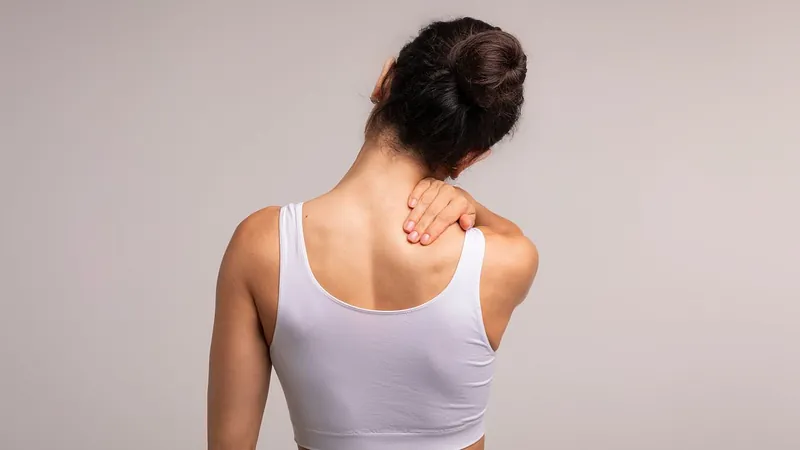
Shocking Everyday Habits That Could Ruin Your Spine Health: Back Surgeons Weigh In
2024-12-26
Author: Jessica Wong
Introduction
In a startling revelation, leading orthopedic surgeons have pinpointed several common habits that can lead to severe back injuries—or worse. A team of specialists from Orthopedic Specialists in Palm Harbor, Florida, recently shared crucial insights during an interview about movements they would strictly avoid as spine surgeons.
Cracking Your Neck
One major concern raised by Dr. Taylor Beatty centers around the seemingly harmless act of cracking your neck to alleviate tension. It may provide a momentary sense of relief, but Dr. Beatty warns that this action can have dire consequences, including the risk of a stroke. The vertebral artery, which runs through the neck, is susceptible to damage when twisted or forcefully manipulated, potentially leading to serious blood clots that can endanger your life. A tragic case from 2019 serves as a cautionary tale: a 23-year-old paramedic suffered a debilitating stroke after cracking her neck in bed, only to later discover that the rupture of her vertebral artery resulted in blood clots forming in her brain.
Everyday Activities at Risk
It's not just neck cracking that poses a risk; a range of everyday activities can threaten spinal health. The Cleveland Clinic notes that actions such as blowing your nose too hard, sneezing forcefully, or pushing your neck beyond its limits during yoga can also lead to artery tears. The message is clear: be mindful of how you treat your neck and back.
Diving into Shallow Water
Diving into shallow water is another dangerous activity that could lead to catastrophic outcomes. According to the National Spinal Cord Injury Data Center, diving is one of the leading causes of spinal injuries globally. When a person dives into shallow water, there's a significant risk of hitting their head or neck on the bottom, which can lead to irreversible spinal cord damage. A recent study highlighted the shocking prevalence of diving-related spinal injuries in the U.S., indicating a trend of severe neurological consequences for the younger population, who are particularly vulnerable.
Deep Squats and Knee Health
Dr. Scott Brotherton emphasized the risks associated with deep squats, notably the potential harm to knee cartilage. Deeper squats can place immense pressure on the knee joint, which can exacerbate pain for anyone with existing conditions. To help mitigate this risk, warming up and stretching muscles before and after squats are recommended to promote better joint health.
Motorcycle Riding Dangers
Motorcycle riding was another activity flagged as hazardous by Dr. Brotherton. Statistics illustrate the dangers, with 15% of motorcycle crash victims suffering severe neck and back injuries. Common injuries from motorcycle accidents include herniated disks, neck sprains, and fractured vertebrae.
Lawn Mower Safety for Children
In a stark warning to parents, Dr. Chris James highlighted that children riding on lawn mowers, often perceived as innocent fun, can be incredibly dangerous. Annually, between 9,000 and 17,000 children suffer lawn mower-related injuries in the U.S., with severe cases leading to fatalities.
The Importance of Seatbelts
Furthermore, Dr. James reminded everyone of the critical importance of buckling up in vehicles. Not wearing a seatbelt can dramatically increase the risk of severe spinal injuries in the event of an accident.
Driving Safety Tips
Dr. Brandon Taylor also shared two other unequivocal "no-nos." He recalled his penchant for driving his Jeep without doors but underlined that having a foot dangling out could lead to a serious accident. Additionally, he cautioned against attaching a dog's leash to a bicycle, as a sudden pull could easily result in a loss of control.
Conclusion
The bottom line? Many everyday habits carry hidden risks to your spine health. By staying informed and making cautious choices, you can significantly reduce your chances of back pain or injury—potentially saving your life.


 Brasil (PT)
Brasil (PT)
 Canada (EN)
Canada (EN)
 Chile (ES)
Chile (ES)
 España (ES)
España (ES)
 France (FR)
France (FR)
 Hong Kong (EN)
Hong Kong (EN)
 Italia (IT)
Italia (IT)
 日本 (JA)
日本 (JA)
 Magyarország (HU)
Magyarország (HU)
 Norge (NO)
Norge (NO)
 Polska (PL)
Polska (PL)
 Schweiz (DE)
Schweiz (DE)
 Singapore (EN)
Singapore (EN)
 Sverige (SV)
Sverige (SV)
 Suomi (FI)
Suomi (FI)
 Türkiye (TR)
Türkiye (TR)